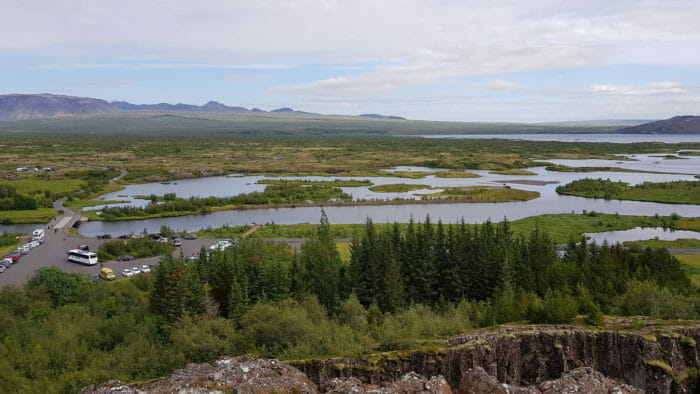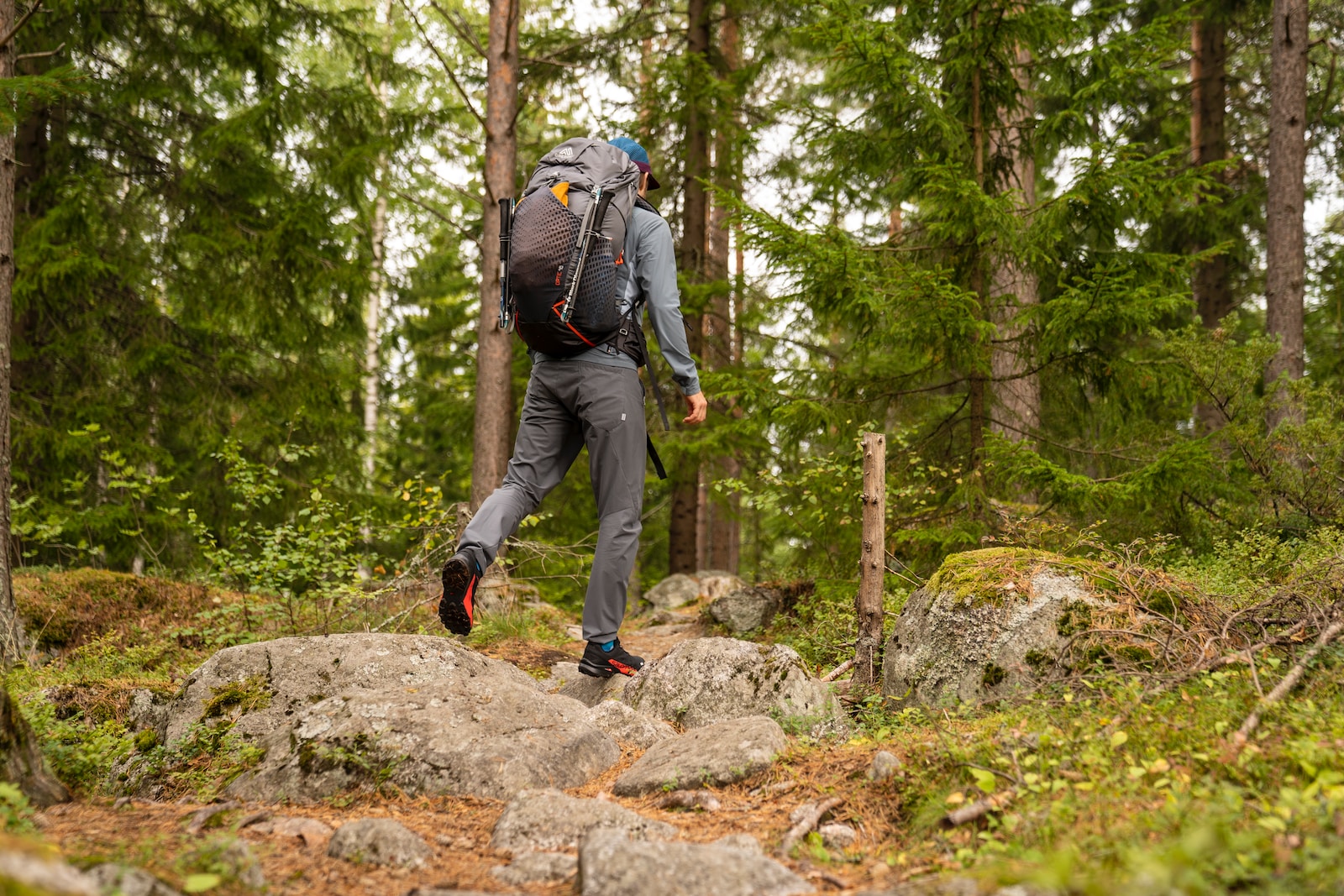Introduction
Experiencing the great outdoors can truly be an antidote to the fast-paced hustle and bustle of our modern lives. Especially when it comes to family bonding, camping trips offer an incomparable mixture of thrill, experiential learning, and heartwarming fun. But you may wonder, how do survival skills and the traditional camping treat ‘s’mores’ fit into this narrative? In this article, we will delve into the fascinating dynamics of camping and how it fortifies family bonds in unique ways.

Part 1: Unveiling the Magic of Camping
Embracing the Adventure: An Unforgettable Experience
Transitioning from the comfort of our homes to the unpredictable, yet serene, embrace of Mother Nature is often an exhilarating experience. Camping, with its bouquet of diverse activities, is a sought-after family pastime that provides more than just a thrilling escape. The unmatched benefits of camping go beyond a fun getaway. They immerse family members in situations that facilitate learning, problem-solving, and instilling a sense of resilience — all of which act as building blocks for deeper family bonding.
Reconnecting with Nature: The Environmental Education
Camping provides an excellent platform for families to reconnect with nature. By spending time in the outdoors, children and adults alike can appreciate the importance of the environment and understand the value of conservation. This shared awareness can foster a sense of responsibility and a unified family commitment to being stewards of the environment.
Understanding Wildlife: Respect and Co-existence
Camping allows families to observe wildlife in their natural habitats, helping children understand that humans are part of a larger ecosystem. It cultivates respect for animals and their spaces and teaches families the importance of peaceful co-existence with nature. These shared values can bring family members closer together, fostering unity and empathy.

Part 2: Survival Skills — Lessons Beyond Basics
Mastering Survival Skills: The Bonding Exercise
Venturing into the wilderness equips family members with essential survival skills such as pitching tents, starting fires, finding and purifying water, understanding weather patterns, and reading a compass. The mastery of these skills isn’t solely about survival in the wilderness. They echo lessons of resilience, adaptability, and resourcefulness. These practical skills, when learned and executed as a team, instill a sense of mutual reliance, deepening trust and understanding amongst family members.
Problem-solving and Decision-making: A Collective Endeavor
Unpredictable weather conditions, building a fire, or even choosing a safe and comfortable spot to set up camp — camping is full of quick decision-making and problem-solving situations. In these instances, families come together to evaluate options, discuss, and arrive at solutions, fostering a sense of collective responsibility and enhancing communication and negotiation skills.
Leadership and Teamwork: A Delicate Balance
Camping invariably brings out the leader in each of us. Whether it’s leading a hike, deciding on the day’s activities, or managing resources, camping trips allow different family members to step up and take charge. Simultaneously, they underscore the importance of teamwork and cooperation. It’s a delicate balance of leadership and collaboration that strengthens relationships and boosts mutual respect.

Part 3: Beyond Survival — Savoring Sweet Moments with S’mores
Creating S’mores: A Sweet Tradition
Camping and s’mores go hand in hand. This traditional camping delicacy — roasted marshmallows and melted chocolate sandwiched between graham crackers — holds a special place in the camping experience. Making s’mores is a hands-on activity that encourages participation from all family members. The simple pleasure of sitting around a fire, roasting marshmallows, and enjoying this sweet treat fosters a sense of camaraderie and connection.
Storytelling around the Fire: Fostering Imagination and Creativity
Campfires provide the perfect backdrop for storytelling — a powerful means of fostering imagination and creativity. Whether it’s sharing personal experiences, family anecdotes, or folklore, storytelling opens channels of communication and paves the way for shared laughter and deeper understanding. It’s a cherished ritual that strengthens family bonds and creates lasting memories.
Stargazing: Expanding Horizons
Under a clear sky, away from the city lights, families can engage in the simple yet profound activity of stargazing. This opens up discussions about astronomy, mythology, and more, expanding horizons and igniting curiosity. Shared learning experiences like these can bring families closer together.

Part 4: Navigating the Camping Routine
Embracing Daily Tasks: A Platform for Cooperation
The daily routine in a camping trip is unlike any other. There’s no set schedule, no rush hour, and no strict meal times. Instead, families find themselves working together to prepare meals, gather firewood, clean the campsite, navigate hiking trails, and more. These shared tasks aren’t just chores; they’re opportunities for cooperation, teamwork, and mutual respect. Each family member’s unique strengths come into play, creating a cooperative environment that enhances understanding and strengthens bonds.
Learning to Cook Together: A Delicious Bonding Activity
One of the most enriching activities during a camping trip is cooking together. Without the convenience of a fully-equipped kitchen, families get creative with their meals, learning to cook with limited resources. Be it roasting fish over the open fire, making a hearty stew, or enjoying a simple yet memorable breakfast under the trees, cooking together is a fun and engaging family activity that encourages teamwork and brings families closer.
1. Foil-Wrapped Grilled Vegetables
This is an incredibly simple and healthy recipe that even the kids can help prepare.
Ingredients:
- Assorted vegetables (bell peppers, zucchini, onions, cherry tomatoes, etc.)
- Olive oil
- Salt and pepper
- Herbs and spices of your choice (optional)
Procedure:
- Cut the vegetables into equal sizes.
- Toss them in olive oil and season with salt, pepper, and optional herbs/spices.
- Wrap them in foil and place the packet on the campfire grill.
- Cook for about 15-20 minutes, turning occasionally.
2. Campfire Skewers
Skewers are fun to prepare and easy to eat, making them a hit with kids and adults alike.
Ingredients:
- Your choice of protein (chicken, beef, tofu, etc.)
- Vegetables (bell peppers, onions, cherry tomatoes, etc.)
- Marinade (your favorite sauce or dressing)
Procedure:
- Cut the protein and vegetables into chunks.
- Marinate your protein for a few hours (if possible).
- Thread the protein and vegetables onto skewers.
- Grill over the campfire, turning occasionally.
3. Pancakes
Who said you can’t enjoy a hearty breakfast while camping? Pancakes are easy to make and always a crowd-pleaser.
Ingredients:
- Pancake mix
- Water or milk (as per pancake mix instructions)
- Syrup, butter, and toppings of your choice
Procedure:
- Follow the instructions on the pancake mix package.
- Cook on a hot skillet or griddle over the campfire.
- Serve with syrup, butter, and your favorite toppings.
4. Campfire Chili
Nothing beats a warm bowl of chili after a long day of outdoor activities.
Ingredients:
- Ground meat (beef, turkey, etc.) or a vegetarian alternative
- Canned beans
- Canned tomatoes
- Chili seasoning
Procedure:
- Cook the meat in a pot over the campfire.
- Add beans, tomatoes, and chili seasoning.
- Let it simmer until heated through.
5. S’mores
No camping trip is complete without s’mores.
Ingredients:
- Marshmallows
- Chocolate bars
- Graham crackers
Procedure:
- Roast a marshmallow over the campfire until it’s brown and melty.
- Sandwich the roasted marshmallow and a piece of chocolate between two graham crackers.

Nature Hikes: Adventures that Teach
Camping trips often include nature hikes that are not just physically engaging but also open up a world of learning. From identifying plants and spotting wildlife to learning about different geographical features, hikes are an excellent opportunity for family members to learn and explore together. They encourage teamwork, especially when navigating challenging trails, and the shared sense of achievement upon reaching the destination can strengthen family bonds.
Leaving No Trace: Fostering Responsibility and Respect for Nature
A crucial part of the camping routine involves respecting nature and leaving no trace. This means families must take responsibility for cleaning up their campsite, ensuring they do not leave behind any waste. This shared responsibility fosters a sense of accountability and respect for the environment. It also teaches children important lessons about conservation, helping them understand the impact of their actions on the environment.
Navigating Challenges: The Pathway to Empathy and Patience
Camping trips, with their fair share of challenges, provide the perfect platform for fostering empathy and patience. It could be struggling to pitch a tent, learning to fish, or dealing with unexpected weather – these experiences encourage families to step out of their comfort zones. As family members support each other, share encouragement, and celebrate small victories together, they learn to appreciate each other’s struggles and achievements, thus fostering empathy and patience.
Nighttime Rituals: Stargazing and Storytelling
Evenings at the campsite have their own charm. As night falls, activities shift towards quieter, more relaxed ones. Families might gather around the fire for a session of storytelling, each member sharing stories, experiences, or playing games. Stargazing is another popular nighttime activity. Identifying constellations, spotting planets, and simply marveling at the vast, starry sky can bring family members closer, ending the day on a note of unity and wonder.
In conclusion, navigating the daily routine during a camping trip is a unique blend of challenges and joys. The shared responsibilities and collective victories serve as valuable bonding moments, weaving a network of shared memories and experiences that bring family members closer together. Through these activities, families can strengthen their bonds, creating a sense of unity that extends far beyond the camping trip.

Part 5: Disconnecting to Reconnect: The Profound Impact of Unplugging
In today’s hyper-connected world, where the incessant pinging of notifications is a ubiquitous soundtrack to our lives, the opportunity to disconnect from our devices and reconnect with our loved ones is priceless. Camping provides the perfect platform for families to put away their screens, engage in face-to-face conversations, and cultivate deeper, more meaningful relationships.
Quality Time over Screen Time
With our lives increasingly spent in the digital realm, the importance of personal interaction and quality time has never been greater. During a camping trip, the lack of Wi-Fi and limited cellular reception ensure the digital distractions that typically vie for our attention are no longer a factor. This opens up space for more engaged and meaningful interactions with family members.
Presence over Posts
In the digital age, it’s all too common to experience life through the lens of our smartphones, documenting moments rather than fully experiencing them. Camping encourages families to be present and fully engaged in their shared experiences, creating memories that live in hearts, not just on social media feeds.
Conversation over Connection
Without the intrusion of screens, conversation becomes the focal point of family interaction on camping trips. Whether it’s sharing stories around the campfire, planning the day’s adventures, or discussing the constellations visible in the night sky, these dialogues foster mutual understanding and respect, strengthening the family bond.
Play over Pixels
Swapping digital games for physical activities can have a profound impact on family bonding. The natural environment offers ample opportunities for play, exploration, and adventure. Whether it’s a game of catch, a scavenger hunt, or a challenging hike, these activities encourage teamwork and shared enjoyment, contributing to a stronger family bond.
Embracing the Unplugged Life
Unplugging from digital devices might initially feel unfamiliar and even uncomfortable, but the benefits of this disconnection are manifold. As families adjust to the rhythm of the natural world, freed from the constant distractions of their digital lives, they are likely to experience deeper connections with each other and their surroundings. This shift in focus from the virtual to the real world helps family members truly appreciate each other’s company and the beauty of the natural world around them.
In conclusion, disconnecting to reconnect during a camping trip offers families the unique opportunity to deepen their relationships. By exchanging screen time for quality time, families can experience a richer, more meaningful shared experience, strengthening their bonds in the process.

Conclusion
Camping trips blend survival skills, sweet treats like s’mores, shared challenges, and abundant laughter to create a rich tapestry of experiences that strengthen family bonds. By tackling obstacles and celebrating successes together, families foster understanding, mutual respect, and shared memories that last a lifetime. So pack up your camping gear, embrace the adventure, and watch your family bonds deepen and grow.
FAQs
- What are some essential survival skills for a camping trip?
- Building a fire, setting up a tent, finding and purifying water, navigation skills, and basic first aid are some of the essential survival skills for a camping trip.
- How can we make camping fun for kids?
- Camping can be fun for kids by incorporating activities like scavenger hunts, fishing, swimming, wildlife spotting, storytelling, and stargazing.
- How does camping benefit the family?
- Camping benefits the family in several ways: it strengthens relationships through shared experiences, teaches essential survival skills, and promotes respect for nature.
- Can camping help in personal growth?
- Yes, camping can significantly contribute to personal growth. It promotes problem-solving, leadership skills, resilience, teamwork, and a greater appreciation for nature.
- Is camping safe for families?
- Yes, camping is generally safe for families as long as necessary precautions are taken. This includes having the right gear, being aware of weather conditions, and having basic survival skills.








